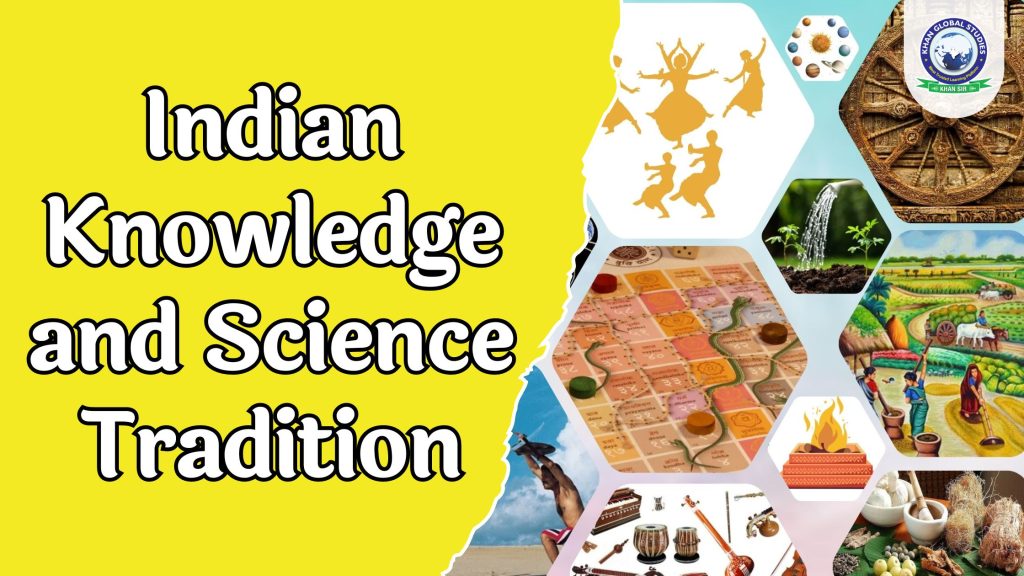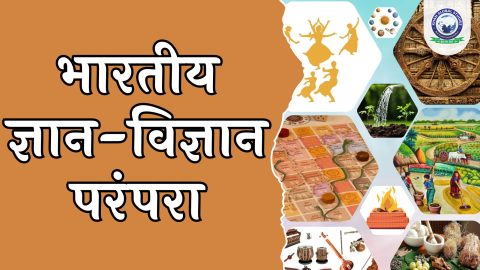India’s intellectual tradition dates back to ancient times, deeply rooted in the Vedas. This treasure trove of knowledge and science has flourished for thousands of years, shaping human civilization within the borders of India and across the globe and leaving an indelible mark on many cultures.
Over the centuries, Indian culture has made remarkable progress in fields such as science, mathematics, astronomy, medicine, Ayurveda and philosophy. The profound insights and research of Indian thinkers have earned them a distinguished place not only domestically but also globally, influencing subjects of knowledge far and wide.
An important part of this tradition is the Vedic literature, which covers many dimensions of knowledge. The Rig Veda, Yajur Veda, Sama Veda and Atharva Veda describe theories related to natural science, medicine and mathematics. Additionally, the Upanishads, which are considered to be an extension of the Vedas, are the cornerstone of Indian philosophical thought.
Definition of Knowledge
Defining knowledge is in itself a wise task. Knowledge is the amalgamation of facts, insights, understandings, and experiences gained by an individual. It involves in-depth familiarity with a subject, which goes beyond mere information to include experiential understanding, logical reasoning, and analytical skills. Knowledge prepares individuals to make correct decisions and solve complex problems.
Definition of Science
Science is a structured exploration that seeks to understand the natural and physical world through observation, experimentation, and analysis. It explains the universe based on facts, principles, and laws. Rooted in rational thought, evidence, and empirical research, science aims to understand the workings of nature and create useful innovations.
Scientific Heritage of India
India’s scientific heritage is rich, with significant contributions to astronomy, mathematics, and medicine. Indian knowledge and science have had a profound global influence, with many ancient Indian concepts and theories influencing Western thought and philosophy. Let’s explore how this profound tradition impacts our lives.
In ancient India, education flourished under the gurukul system, where students acquired knowledge under the tutelage of their teachers. This system provided holistic and integrated education. The traditions of yoga and Ayurveda, which are essential to India, promote a balance between physical, mental and spiritual health.
Furthermore, the harmony between religion, philosophy and science in Indian culture is extraordinary. Religious and philosophical texts explain scientific principles in a complex and unique way. The contributions of giants like Aryabhata and Varahamihira, who excelled in mathematics and astronomy, are still appreciated in the scientific community. Aryabhata’s discovery of zero and his studies on planetary motion are particularly noteworthy.
In the modern era, Indian scientists like C.V. Raman, A.P.J. Abdul Kalam and Vikram Sarabhai have taken Indian science to the global stage. Their successes have strengthened India’s reputation as a global scientific superpower.
Dimensions of Indian Knowledge and Science Tradition
- Vedas and Upanishads: The core of Indian knowledge. These texts discuss in depth topics like religion, philosophy, science, mathematics and astronomy.
- Ayurveda: An ancient Indian medical system that uses natural substances to diagnose and treat diseases.
- Yoga: A millennia-old Indian practice that integrates the body, mind, and spirit.
- Astrology: Indian astrology interprets planetary and celestial movements to predict future events.
- Mathematics: Indian mathematicians developed fundamental concepts such as zero, the decimal system, and algebra.
- Astronomy: Ancient Indian astronomers extensively studied planetary motion and the universe.
Global Impact of Indian Knowledge and Science
Indian knowledge and science have spread their resonance across the world, and have influenced many fields. Examples include:
- Yoga: Today, yoga is widely practised across the world as a method for physical exercise and stress relief.
- Ayurveda: Ayurvedic principles are increasingly being integrated into modern medical practices.
- Mathematics: Indian mathematical principles such as the concept of zero are fundamental to modern mathematics.
- Philosophy: Indian philosophical principles have had a profound influence on Western thought.
Preserving and Promoting Indian Knowledge and Science
To safeguard and promote this ancient tradition, several steps can be taken:
- Education: Indian knowledge and science should be included in school and university curriculum.
- Research: Greater emphasis should be laid on research within the realm of Indian knowledge and science.
- Institutions: Dedicated institutions focusing on Indian knowledge and science should be established.
- International Collaboration: Indian knowledge and science should be shared with the world through global partnerships.
Conclusion
India’s knowledge and science tradition is as relevant today as it was in ancient times. The contributions of Indian scholars and scientists will continue to inspire future generations. The enduring legacy of India’s intellectual tradition will always serve as a lighthouse for mankind.
Frequently Asked Questions
Question: What are the main characteristics of Indian knowledge and science?
Answer: Indian knowledge and science uniquely blend religious and philosophical ideas with scientific principles, creating a distinctive intellectual tradition.
Question: What was the contribution of Aryabhata?
Answer: Aryabhata discovered zero and made groundbreaking contributions to the study of planetary motion.
Question: What is the primary focus of Ayurveda?
Answer: Ayurveda emphasizes a holistic approach to physical and mental health.
Question: What was the education system like in ancient India?
Answer: The Gurukul system provided students with a comprehensive education under the guidance of a guru.
Question: Who are the modern Indian scientists?
Answer: C.V. Raman, A.P.J. Abdul Kalam, and Vikram Sarabhai are the key figures of modern Indian science.




